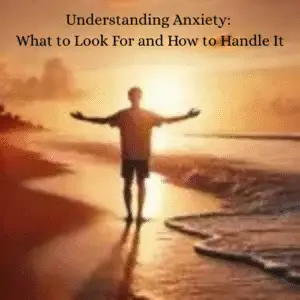How Sublocade can help with Opioid Addiction?
Opioid addiction is a tough battle, affecting millions of lives across the U.S. every day. It can feel like an overwhelming cycle, but the good news is, recovery is possible. One treatment that’s been gaining attention lately is Sublocade, a medication specifically designed to help people manage opioid addiction. But what exactly is Sublocade, and how can it help someone struggling with addiction?
In this post, we’ll explore what Sublocade is, how it works, and why it might be a game-changer in your journey to recovery. If you or a loved one is trying to overcome opioid addiction, understanding what this treatment offers can be a big step toward finding the right help.
What Is Sublocade ?
Sublocade is a prescription medication used to treat opioid addiction, but it’s a little different from other options out there. Instead of taking a daily pill, Sublocade is a once-a-month injection that delivers buprenorphine—the key ingredient—slowly over time. Buprenorphine helps manage cravings and withdrawal symptoms, making it easier to stay focused on recovery without constantly thinking about your next dose.
Unlike other treatments, where you might need to take a pill every day or several times a week, Sublocade offers the convenience of one shot per month. That means fewer reminders, less hassle, and more freedom to focus on living your life.
How Does It Work?
Buprenorphine, the active ingredient in Sublocade, works by attaching to the same receptors in your brain that opioids do. But here’s the key: it doesn’t activate those receptors in the same way. Instead, it reduces the intense cravings and withdrawal symptoms that make opioid addiction so hard to break, without giving you the same high that drugs like heroin or prescription painkillers do.
Because Sublocade is a long-acting treatment, it helps maintain a steady level of buprenorphine in your body for a full month. This stability can be a huge relief, especially if you’ve struggled with the highs and lows that come with daily medications. You’re not constantly fighting cravings, and you don’t have to worry about missing doses.
What Makes Sublocade So Effective?
- One Less Thing to Worry About
Life can get busy, and remembering to take medication every day isn’t always easy—especially in the middle of recovery, when you’ve already got a lot on your plate. With Sublocade, it’s just one injection a month, so you don’t have to stress about remembering to take your meds every day. - Less Temptation to Misuse
Since Sublocade is administered by a healthcare provider, you don’t have to handle the medication yourself. This can be a big plus if there’s concern about accidentally taking too much or misusing it. You go in for your appointment, get the injection, and you’re covered for the next month. It takes a lot of the temptation and risk out of the equation. - Steady Support Without the Ups and Downs
Some daily medications can cause your body to experience fluctuating levels of buprenorphine, which may leave you feeling less stable. Sublocade, on the other hand, delivers a consistent dose all month long. That means more balance, less anxiety over your treatment, and a greater sense of control as you navigate recovery. - Works Well with Other Support
Sublocade isn’t meant to be a silver bullet. Like most effective treatments for opioid addiction, it works best when paired with therapy, counseling, or support groups. By managing the physical cravings and withdrawal symptoms, Sublocade can give you the stability you need to fully engage with those other forms of support. It’s about treating both the body and the mind, allowing you to heal on multiple levels.
Is Sublocade Right for You?
Sublocade is typically recommended for people who have already started on a lower dose of buprenorphine (such as Suboxone) and are stabilized in their recovery. From there, your healthcare provider might suggest switching to Sublocade for its convenience and effectiveness. If you’re tired of the daily grind of taking medication or feel like your treatment plan needs more structure, Sublocade could be a great option.
The Takeaway: Finding Stability in Recovery
If you or someone you care about is dealing with opioid addiction, Sublocade may be worth considering. It offers the convenience of once-monthly treatment, helps reduce cravings, and minimizes the risk of misuse—all important factors when it comes to staying on track. But like any treatment, it works best when combined with a broader mental health support plan, whether that’s therapy, counseling, or peer support.
Opioid addiction can feel like a never-ending struggle, but recovery is possible with the right tools and support. If Sublocade sounds like something that might fit into your recovery journey, talk to your doctor or addiction specialist. The path forward isn’t always easy, but with help, it’s absolutely achievable.
Final Thoughts
Opioid addiction doesn’t define you, and it doesn’t have to dictate your future. Medications like Sublocade can provide a solid foundation for recovery, making it easier to stay focused and committed to healing. Recovery takes time and effort, but every step forward—no matter how small—is progress.
If you’re curious about Sublocade or want to explore other mental health support and therapy options, don’t hesitate to reach out to One Stop Psychiatry’s healthcare professionals. Don’t hesitate to contact us
call us for free consultation: (754) 270-6322
Address: 8910 Miramar Pkwy Office 309G, Miramar, FL 33025




